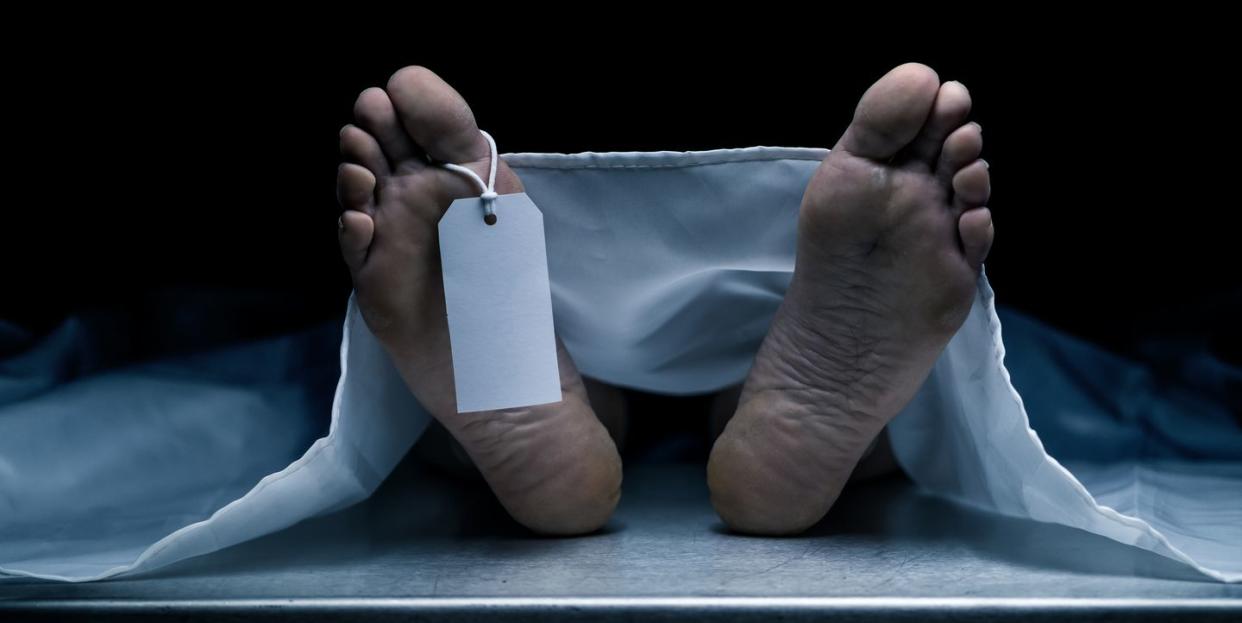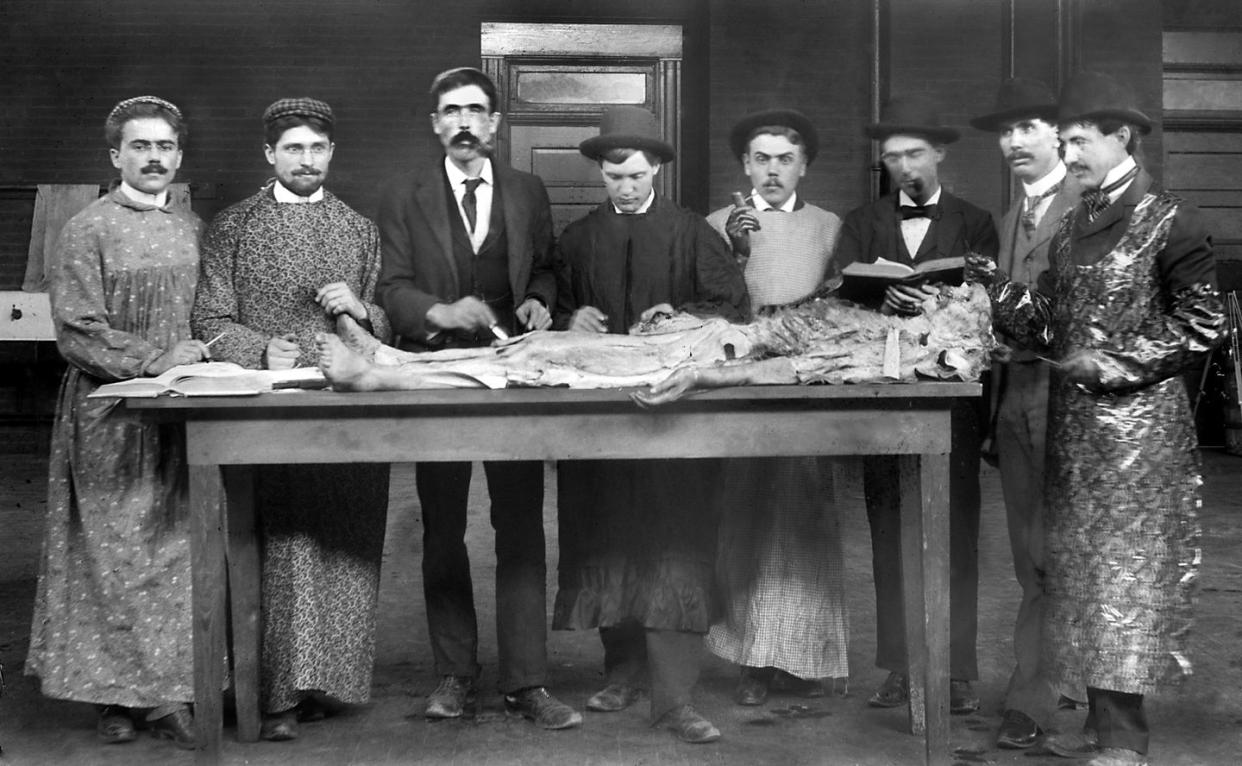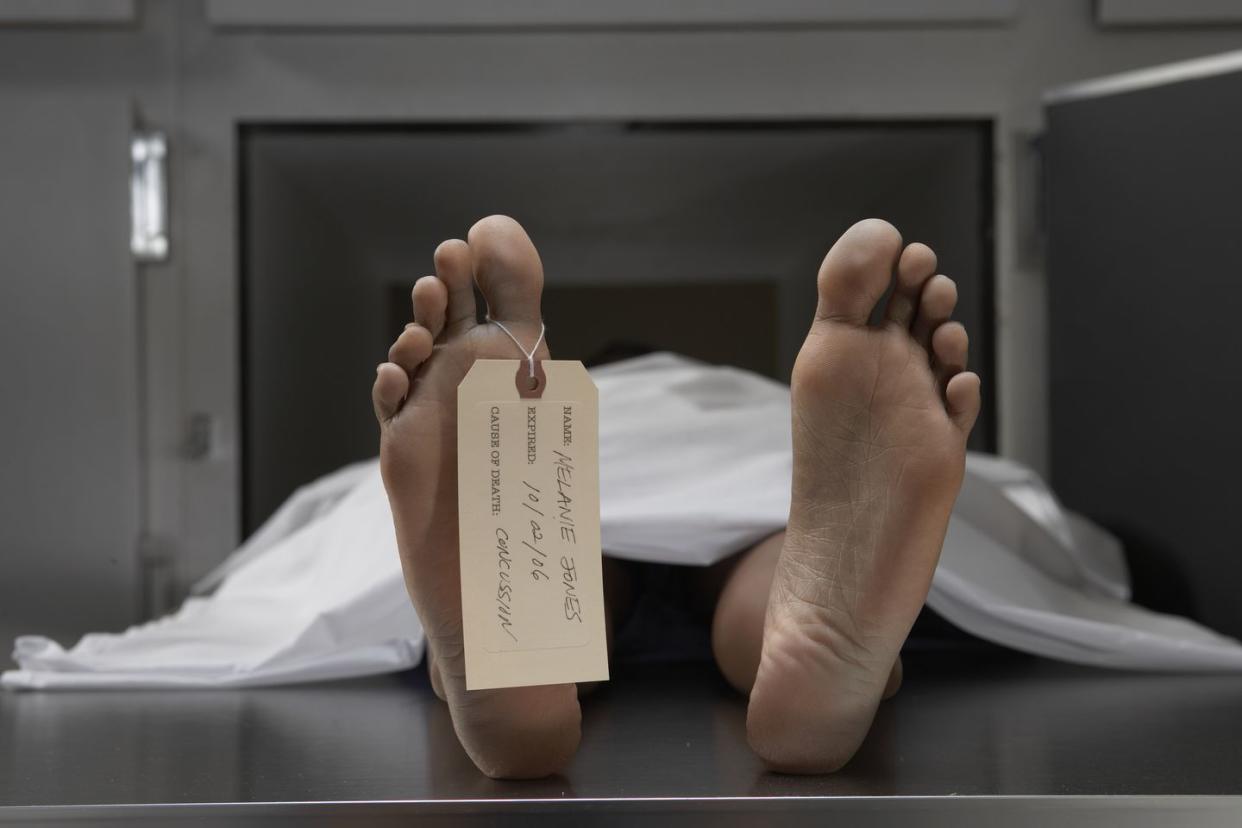Considering Donating Your Body to Science? Read This First.

If you’re feeling altruistic and want to give back to society even after you die, body donation is an excellent option. Giving yourself—literally all of yourself—is arguably the most generous gift you can give. But if turning your body over to poking and prodding scientists leaves you feeling uneasy, or if you’ve heard reports of bodies being used in gruesome ways, like for bomb detonation tests, you might want to know more before signing the dotted line.
🔬You love science. So do we. Let’s nerd out over it together—join Pop Mech Pro.
Donating your body to science is not as straightforward as checking a box at the DMV, like when you sign up to become an organ donor. It turns out there are a wide range of uses for cadavers, the technical term for deceased human bodies that physicians and other scientists use for research and education. That said, the options can be overwhelming. So, how exactly do scientists use donated bodies? And what should you know before deciding to donate your own body to science?
Who Can Donate Their Body to Science?
Just because you’ve signed up to become a body donor doesn’t mean you will be eligible at your time of death. If you have contracted a communicable disease—like HIV, hepatitis, tuberculosis, or even COVID-19—you can be excluded from programs due to the risk of spreading disease. Additionally, people that require an autopsy or suffer traumatic bodily injury at their time of death may also be disqualified, since the bodies need to be intact for medical students to study them.
Is Body Donation Different From Organ Donation?
Yes. You sign up to be an organ donor when you get your driver’s license, but it has nothing to do with whole-body donation. There are specific organizations like medical schools, research institutes, and even third-party vendors that deal in whole bodies. According to Robin Bozarth, genesis manager at Genesis Legacy Whole Body Donation Foundation, a nonprofit body donation organization based in Tennessee, there are no federal standards governing the handling of bodies.
However, Bozarth says medical schools are a safe bet and there are accreditation programs that ensure ethical standards for non-university donor organizations. The American Association of Tissue Banks is one. “We encourage everyone to do their research,” Bozarth tells Popular Mechanics. “Don’t just assume that all donation organizations are the same.”
After all, body donation has gone awry in the past. In one recent example, the body of a 98-year-old Louisiana man who donated his body for medical research was dissected on stage. In front of a morbidly curious audience that paid up to $500 per seat to watch the show, the man’s body and organs were splayed out for all to see. The man’s wife, who learned about her husband’s body through news reports, was devastated.
How Will Your Body Be Used?

The most common use of a donated body is for training at medical schools. Even with all the advances in virtual reality and imaging, bodies are still very much needed to train the next batch of doctors. “A biologist would tell you it is better to study from the organism itself and not a representation of it,” says Robert Hill, the director of the Anatomical Gift Program at the Zucker School of Medicine at Hofstra University in New York. According to Hill, human anatomy varies from individual to individual, and actual human cadavers allow medical students to see this firsthand. “It turns out we’re actually really quite different on the inside and it pays for medical students, and ultimately doctors, to know about that,” he tells Popular Mechanics.
They are also used to practice medical procedures. Emergency surgeries like chest tube placement, gallbladder removals, and appendectomies, as well as orthopedic surgeries like knee and hip replacements, are first practiced on cadavers. “A lot of our students refer to their body donor as their first patient,” Hill says.
A less well-known use of cadavers is in forensic research. It turns out there are at least a dozen different research institutions across the U.S. and internationally that study decomposition. In these facilities, bodies are simply left out in the elements to decay naturally. Locations are chosen for their diversity. Some are in forests, or deserts, or high-altitude environments to simulate different ecosystems where a crime might have occurred. Other times, bodies are propped up in cars, or exposed to potential animal scavengers.
⚰️ Dying to Know More?
According to Melissa Connor, the director of the Forensic Investigation Research Station at Colorado Mesa University in Grand Junction, Colorado, her group has made important discoveries that will help future investigators solve crimes. Research can help decipher whether scratches in the bone are due to animals or a murderer’s knife, for example. It can also help estimate how long a body has been decaying based on the bacteria or fungi composition growing there. “We are writing the text books on decomposition,” Connor tells Popular Mechanics.
And perhaps the least savory uses of a donated body include studying explosions, crashes, and other traumatic events. The automobile industry, the military, and even makers of protective sports equipment all use cadavers to develop and test their products. “Any kind of safety device that has been added to a vehicle I can assure you has come out of the work that has been done with cadavers,” Cynthia Bir, a biomedical engineer at Wayne State University in Detroit, Michigan, tells Popular Mechanics.
Bir’s lab uses cadavers to create better crash test dummies. She says although dummies were originally undersigned in the 1970s, they need to be updated in order to test new safety features that are developed, like side airbags, collapsable steering wheels, and even new technologies like driverless cars that have a side or reclined seat for the driver. In addition, the military develops special dummies to assess the damage from landmines and other military threats.
What Should You Know Before Donating Your Body?

The decision to donate your body to science is a big one and you should discuss your wishes with family members first. “It affects everyone, not only the person who is being donated,” Sebastian Cotofana, professor of anatomy at the Mayo Clinic in Rochester, Minnesota, tells Popular Mechanics. It is possible for the next-of-kin to cancel a body donation if they aren’t comfortable with the decision, so it is critical to get the family on board. It is also important for them to know the details of donation. For example, whether they get the remains back or not. It can take up to five years after death to get the ashes in some cases, and sometimes the family doesn’t get the remains back at all.
In addition, you can’t specify what you want your body to be used for specifically. If you become a body donor for a medical school, for example, you can’t specify that you want to be studied for the effects of Alzheimer’s.
Lastly, donors and family members should know how much their gift is appreciated. Most medical schools have special ceremonies to honor the donors’ lives before they use the body.
“We treat the specimens with so much respect,” Bir says. Hill concurs: “If you’re donating your body to [a] medical school, then you can be sure that it’s being used respectfully.” Hill says at the end of each academic year, they invite families to come to the school for a special ceremony where they reflect on the lives of the donors. “There is rarely a dry eye in the room,” he says.
You Might Also Like
